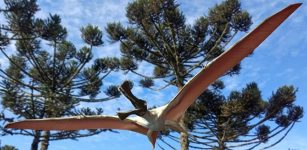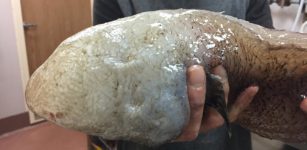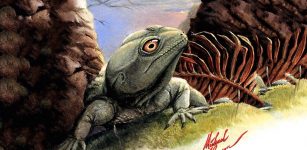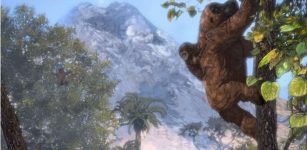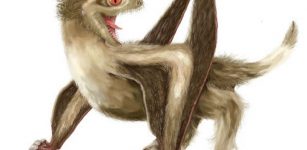Two New Psilocybe Mushroom Species Found In Southern Africa
Eddie Gonzales Jr. – MessageToEagle.com – Two new Psilocybe species of psychoactive mushrooms have been discovered in southern Africa, bringing the total to six indigenous African species.
Psilocybe maluti was found growing in pastureland on cow manure in the Free State and Kwa-Zulu Natal provinces of South Africa, as well as the highlands of Lesotho. Credit: Cullen Taylor Clark
Psilocybe is a well-known genus of psychoactive mushrooms, with about 140 described species worldwide.
Researchers from Stellenbosch University and citizen mycologists have described two new species, Psilocybe ingeli and Psilocybe maluti, in a paper published in Mycologia.
Talan Moult discovered Psilocybe ingeli in KwaZulu-Natal pastureland in 2023. Daniella Mulder found Psilocybe maluti on a Free State smallholding in 2021, sending photos to Andrew Killian, a prominent South African mycologist, for identification.
A single collection of Psilocybe ingeli was found in KwaZulu-Natal, growing in pasture land. Credit: Talan Moult
The unusual specimens were sent to Breyten van der Merwe for DNA analysis in Prof. Karin Jacobs’ lab at SU’s Microbiology Department. Van der Merwe, a trained mycologist and now a chemical engineering postgrad at SU, is the paper’s first author.
The paper discusses P. maluti’s traditional use by Basotho healers in Lesotho. It appears to be the first documented account of hallucinogenic mushrooms in traditional African practices.
Cullen Taylor Clark, a citizen mycologist, collaborated with Mamosebetsi Sethathi, a Mosotho traditional healer, to document P. maluti’s use in traditional medicine. This is part of Clark’s broader project to record mushroom use by indigenous southern African groups.
Van der Merwe believes more southern African species exist in this genus. He emphasizes the importance of citizen scientists, who provided these two species. Their involvement is crucial for expanding African mycology research, as they can access areas beyond a single researcher’s reach.
Few mycologists in Africa document local fungal biodiversity, a challenging task given the continent’s vast diversity. Collaborating with citizen mycologists provides more material and creates opportunities for conversation, potentially uncovering Africa’s mycophilia, according to Prof. Jacobs.
Written by Eddie Gonzales Jr. – MessageToEagle.com Staff Writer





